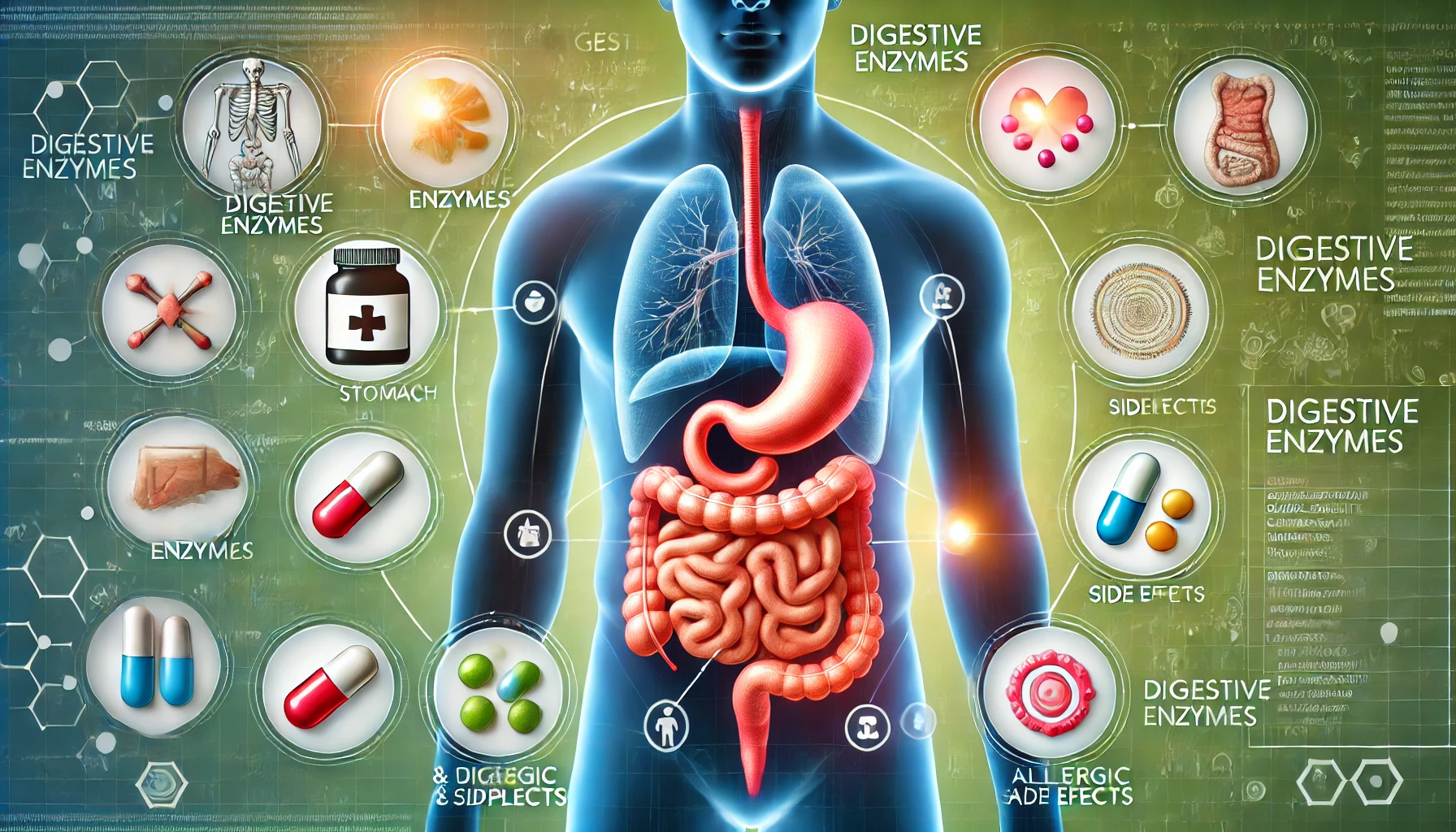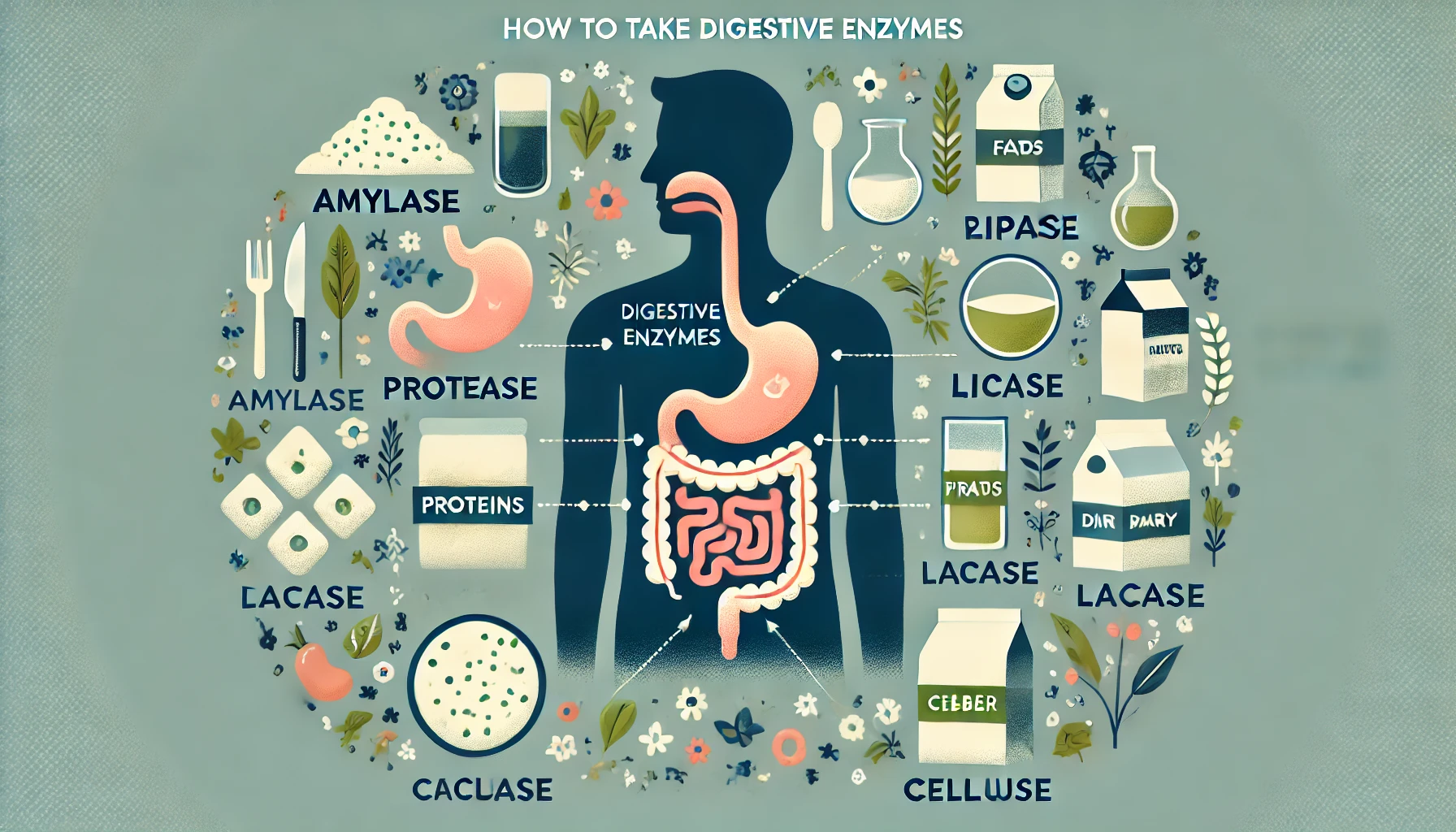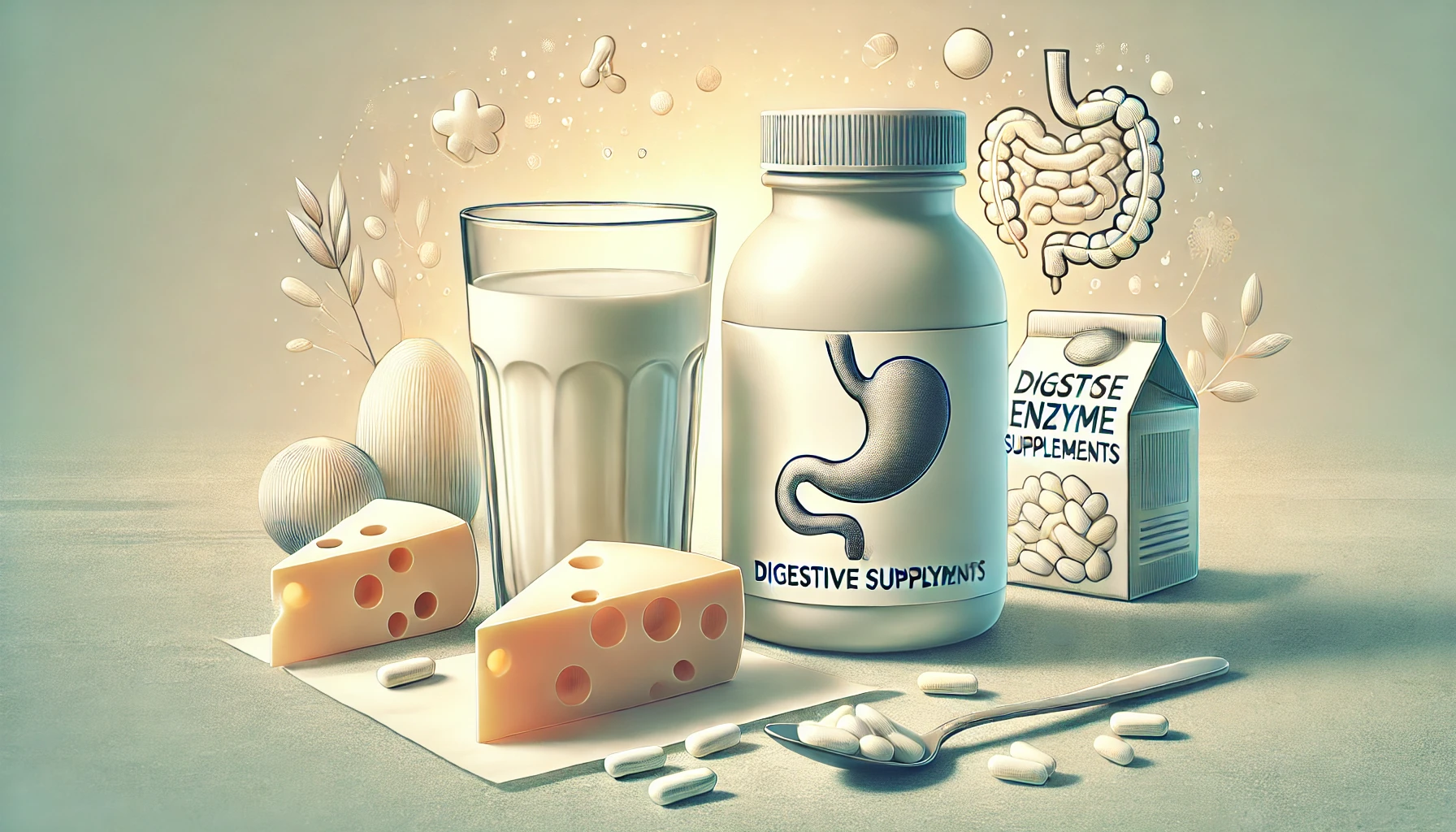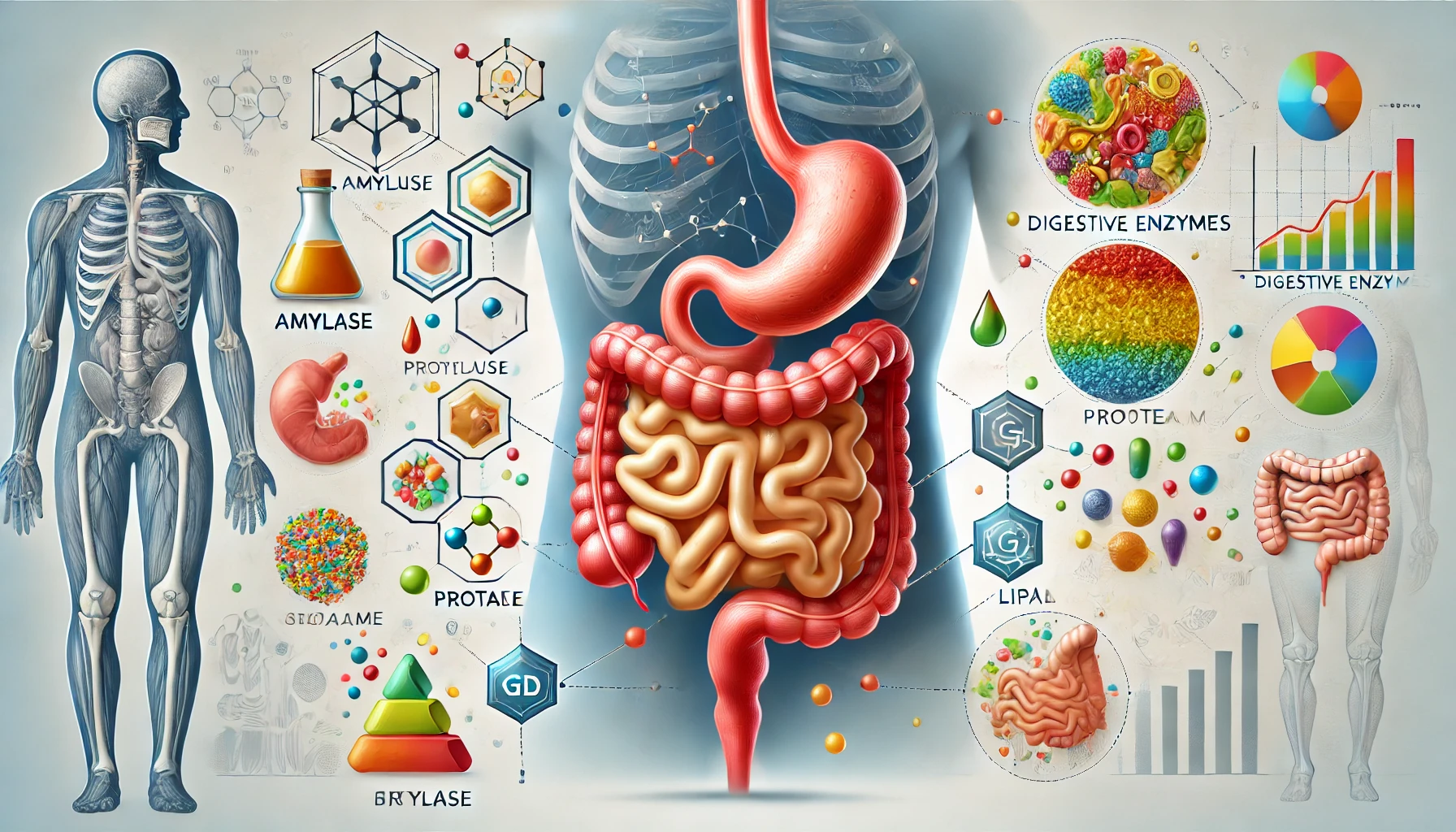Bloating is a common digestive issue characterized by an uncomfortable sensation of fullness or swelling in the abdomen. One potential solution for alleviating bloating is the use of digestive enzymes, which are proteins that help break down food into smaller molecules that the body can easily absorb. When the body lacks sufficient enzymes, food may not be fully digested, leading to bloating and other digestive discomforts.
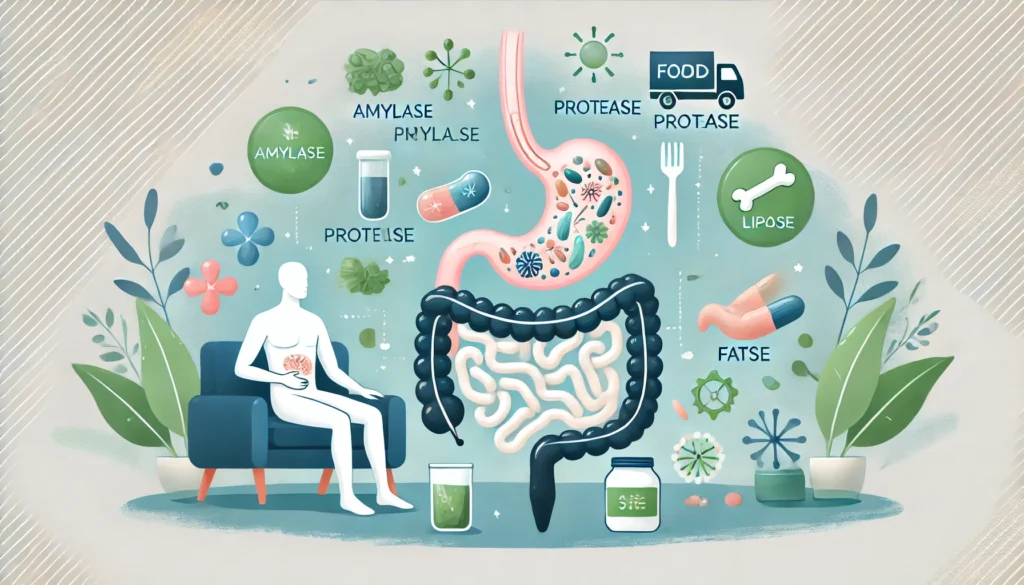
How Digestive Enzymes Work
Digestive enzymes are produced naturally in the body and help break down different types of nutrients:
- Amylase: Breaks down carbohydrates into simple sugars.
- Protease: Breaks down proteins into amino acids.
- Lipase: Breaks down fats into fatty acids and glycerol.
In some cases, the body may not produce enough of these enzymes, resulting in undigested food that can ferment in the gut, producing gas and leading to bloating. Digestive enzyme supplements can help by providing the necessary enzymes to aid in the complete digestion of food.
Summary: Digestive enzymes like amylase, protease, and lipase facilitate the breakdown of carbohydrates, proteins, and fats, respectively, helping to prevent incomplete digestion and reduce bloating.
Causes of Enzyme Deficiency
Enzyme deficiency can occur due to several factors, including aging, certain medical conditions, and lifestyle choices. As people age, their bodies may produce fewer digestive enzymes. Conditions like chronic pancreatitis, cystic fibrosis, and celiac disease can also impair enzyme production. Additionally, a diet high in processed foods, which often lacks natural enzymes, can contribute to enzyme deficiency.
Summary: Aging, medical conditions, and diets high in processed foods can lead to enzyme deficiency, resulting in improper digestion and bloating.
How Digestive Enzymes Alleviate Bloating
Taking digestive enzyme supplements can significantly reduce bloating by ensuring that food is thoroughly broken down and absorbed in the digestive tract. These supplements are particularly beneficial for individuals who experience bloating after consuming foods that are difficult to digest, such as lactose, gluten, and certain proteins. By improving digestion, digestive enzymes help reduce the amount of undigested food in the gut, thereby minimizing the fermentation process that leads to gas and bloating.
Summary: Digestive enzyme supplements improve digestion by aiding the breakdown and absorption of food, which helps reduce undigested food in the gut and alleviates bloating.
Choosing the Right Digestive Enzyme Supplement
Not all digestive enzyme supplements are created equal. It’s important to choose a supplement that contains a broad spectrum of enzymes, including amylase, protease, lipase, lactase (for lactose digestion), and cellulase (for fiber digestion). The supplement should be free from artificial additives and fillers. Additionally, consulting with a healthcare provider before starting any new supplement is recommended, especially if you have underlying health conditions.
For high-quality options, you can explore this list of Digestive Enzyme Supplements, which have been reviewed for effectiveness and safety.
Summary: Select a digestive enzyme supplement that contains a variety of enzymes and is free from artificial additives. Consultation with a healthcare provider is recommended before starting any new supplement.
Potential Side Effects of Digestive Enzyme Supplements
While digestive enzyme supplements are generally safe, they may cause side effects in some individuals. Common side effects include nausea, diarrhea, and abdominal cramps. These effects are usually mild and temporary, but if they persist, it’s important to discontinue use and consult a healthcare provider. People with allergies should also carefully check the label to avoid potential allergens such as soy or dairy.
Summary: Digestive enzyme supplements may cause mild side effects like nausea or diarrhea. If these side effects persist, it’s advisable to discontinue use and consult a healthcare provider.
FAQs
Can digestive enzymes help with other digestive issues besides bloating?
Yes, digestive enzymes can help with a variety of digestive issues, including indigestion, gas, and food intolerances.
How long does it take for digestive enzymes to work?
Digestive enzymes typically start working within 30 minutes to an hour after taking them with a meal.
Can I take digestive enzyme supplements every day?
It’s generally safe to take digestive enzyme supplements daily, but it’s best to consult with a healthcare provider to determine the appropriate dosage for your needs.
Are there any foods that naturally contain digestive enzymes?
Yes, foods like pineapple, papaya, and fermented foods (e.g., yogurt, sauerkraut) naturally contain digestive enzymes.
The Final Note
Digestive enzymes are essential for the proper breakdown and absorption of the nutrients in the food we eat. For those who experience bloating, supplementing with digestive enzymes can provide relief by improving digestion and reducing gas production in the intestines. When selecting a supplement, it’s important to choose one that is comprehensive and tailored to your specific needs. Always consult with a healthcare provider before beginning any new supplement regimen to ensure it’s safe and appropriate for you.
By understanding how digestive enzymes work and how they can alleviate bloating, you can make informed decisions about incorporating them into your daily routine for better digestive health.
